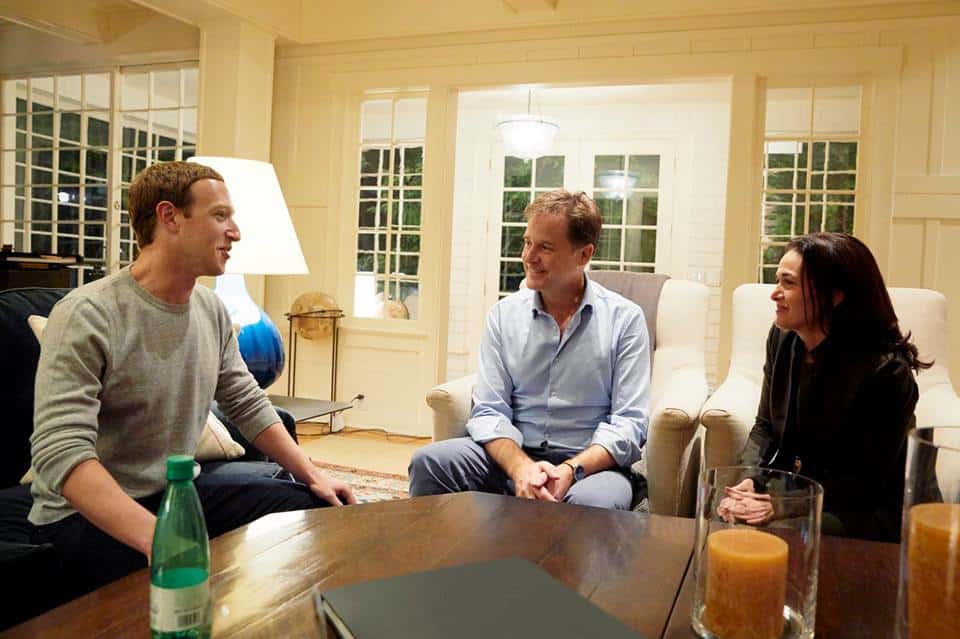Facebook’s vice president of global affairs and communications called for “a more honest debate about what social media is and what it isn’t,” Thursday. Speaking in New Delhi, India, Sir Nick Clegg also accepted some criticism levelled at his company.

Cooperation Needed to Regulate Next Phase of the Internet
While he conceded not everything is “rosy”, Sir Nick said people need to be clearer on “what [social media] can fairly be held responsible for and what it can’t.” He said that designing the rules for the next phase of the internet “will require painstaking work from both policymakers and tech companies –which can only be done in an atmosphere of co-operation rather than confrontation.”
The former British Deputy Prime Minister also warned against the emergence of two internets, one in China and one in the rest of the word. He urged democratic societies to work together to avoid “sleepwalking into a new era where the internet is no longer a universal space but a series of silos.” Sir Nick said that “Facebook is a new sort of company,” pointing out that it is only 15 years-old. This brought with it “a new set of responsibilities,” he argued, added that the company does not “shy away” from them.
Some Facebook Criticism Valid
Sir Nick did though accept some complaints against Facebook. He said in the company’s early years “privacy was not always the priority it should have been. It absolutely is now.” He said this caused some “profound problems,” notably the Cambridge Analytica case.
Furthermore, Sir Nick conceded:
Facebook has not always thought deeply enough about how its services could be used – or indeed abused – by authoritarian regimes.
Let’s see; taking people’s data to be held in perpetuity, sold without their consent to anyone willing to pay, with no compensation to the person whose data these are, and with no Data Transfer Agreement or Terms of Use (insofar as we can see) to said purchasers; purchasers whose identity, affiliations and motives were ascertained by methods yet to be disclosed, if at all – indeed, what could possibly go wrong? How could anyone have possibly anticipated abuse by authoritarians and other unsavoury actors? And how could FB possibly be held accountable for authoring and enabling all of the above?
It’s introspective and insightful reflections such as these that inspire disdain for leaders, be they in the public or private sectors, when their policies, adopted with gleeful hubris, go south, and moves public sentiment against them.
Sure kid, we can have an honest debate and then we will regulate you to be honest.